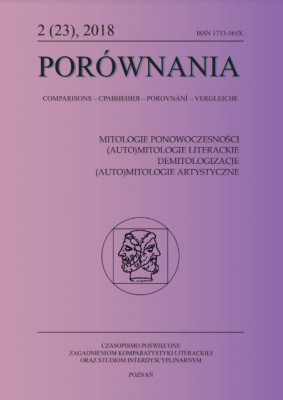THE MYTH OF SACRIFICE AND THE MYTH OF TRUTH IN SLOVAK LITERATURE AFTER THE SECOND WORLD WAR (J. C. HRONSKÝ: ANDREAS BÚR MAJSTER AND DOMINIK TATARKA: FARSKÁ REPUBLIKA AND ESSAYS)
Hronský’s work was written in Rome at the beginning of his journey until emigration in 1947/48. This, in terms of genre and content, is a distinctive form: an autobiographical tale through which the author erected a memorial. Andreas Búr embodies the capabilities and tragedy of the author. The sacrifice for the people who kill him bears in itself a Christian pathos and at the same time the extinction of everything the author was. His character remains in the memory of the people as the myth of an ethical act. Tatarka’s work was written in Slovakia in 1948. This critique of conventional Christianity, which has tragic consequences for a defenceless woman and her children, is linked with criticism of the author Hronský in the novel Andreas Búr Majster. The movement towards the myth of truth begins in Tatarka immediately at the time of thawing after Stalin’s death in the essay “Démon súhlasu” (The Demon of Conformity) and ends in the author’s 19 years of “life in truth” and the victim of a life without civil rights.
| Article Title | Type | Size |
|---|---|---|
| 03 Batorova | [pdf] | [811 KB] |
